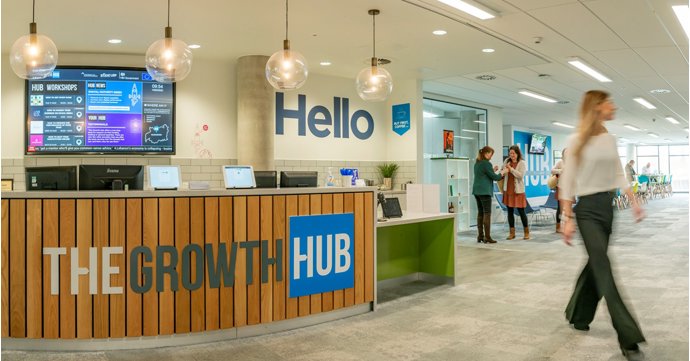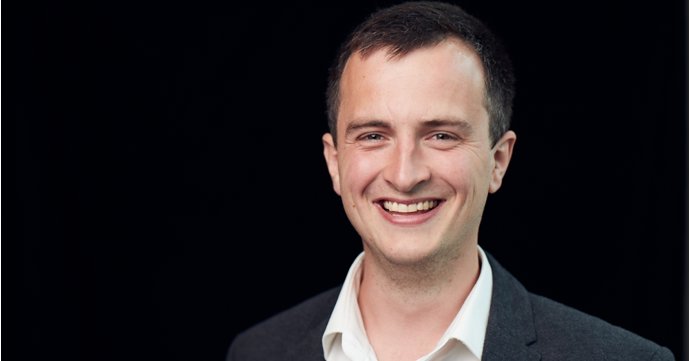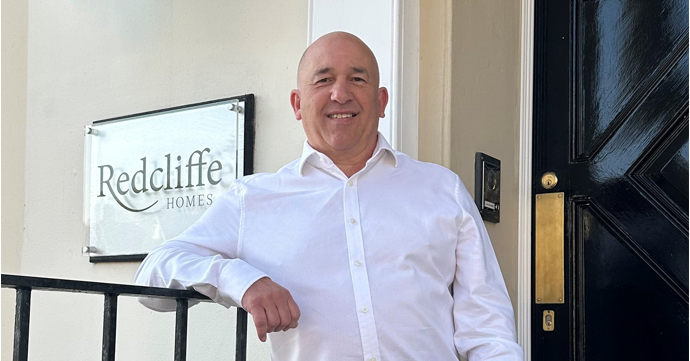An apprenticeship might once have suggested someone starting their career in a list of hands-on industries, but an on-going revolution now sees all staff and sectors able to tackle a qualification that can stretch beyond degree level.
Determined to help apprentices succeed, the University of Gloucestershire is leading the way when it comes to delivering a range of higher, tailor-made options – allowing businesses to invest in, retain and develop their staff.
Its Business School is already synonymous with The Growth Hub and GFirst LEP, all of which are under one roof on its Oxstalls site, and its growing catalogue of apprenticeships are proof of its desire to continue to listen, learn and deliver what business wants.
But, no matter how good the course or what level the apprenticeship, the hard work ultimately comes from one place – the apprentice who steps up and tests themselves.
About the apprentice - Joshua Davis of Attivo Group

When Joshua Davis completed his degree – a first in accounting and finance at the University of the West of England – he still needed to find a path into his career of choice.
Step one was landing a job at Cheltenham headquartered Attivo Financial Services, part of Attivo Group, with Joshua not just attracted by the firm’s reputation but the career path it laid out for him.
That path has allowed the Gloucestershire-born resident to continue to live in his home-county and play for Tewkesbury RFC, as well as develop his career for many years to come.
And it all starts with an apprenticeship at the University of Gloucestershire, which he describes as ‘perfect way’ to achieve is career goals.
What was your first ever job?
My first job was a paper round. It was just a few hours a month, so I could focus on my education. Education has always been a priority since I can remember.
What do you do now?
I am now a trainee paraplanner at Attivo Financial Services working through my examinations to become a paraplanner and hopefully eventually a financial advisor. In all honesty, it’s not what I was always expecting to be doing and wasn’t until February this year I knew about the job role.
I found out about financial planning from one of my university modules. Before that we had only really been told about being an accountant, but the financial planning industry combines aspects of accountancy whilst being able to support clients in reaching their goals for the future.
Can you tell us about your working week?
We have different tasks each day and each week, so it really varies. One hour I could be contacting clients to arrange their annual review meetings with their financial advisor and the next contacting providers to obtain policy information for the clients.
We also, as a team, carry out business submissions for the financial advisors; we contact the providers and give them instructions as to moving clients’ funds between providers and where to invest it. The hours we work are 9am – 5pm, but on Wednesdays we have a day of virtual study.
Why, on top of your busy working week, add an apprenticeship?
It’s the perfect way to make progression in your career. Allowing us to work towards becoming professionally certified in the industry whilst having support from industry professionals and our colleagues who have been in the same position. I can’t lie, it is a lot of work, but in the end I know it’ll be worth it.
How did you feel about a return to the classroom?
I started a week after finishing my university exams so really, it’s like I never left. I was still in that same mindset of revising, so I think that massively helps my studies towards my professional certifications.
How many hours a week do you dedicate to the course?
The company allocates us one working day a week for revision during our exam periods. In the build up to exams we have one day per week for independent study for the first three weeks and for the next three weeks we are with a lecturer from the University of Gloucestershire or BTS (Bespoke Training Solutions). It really helps when preparing for exams as if it wasn’t an apprenticeship, it gives us that break during the week to solely focus on working towards those qualifications.
Can you use your own business as the case study?
Yes. Using Attivo Financial Services rather than another company makes it that much easier to understand the case study. It means you can apply what you are using every day to the case study and allows you to give real insight into the processes rather than a broad overview that you would have if it wasn’t the company you worked for. It also helps to reiterate that knowledge and those skills that you’re learning on the job as I find when you explain something it helps to cement that piece of knowledge.
Is being alongside other colleagues a positive too and do you support one another?
Having a team all in the same position has been so helpful. We’re all so supportive of each other and everyone is happy to help each other in whatever way they can whether it be understanding a part of our studies or how to do a new task at work.
It’s not just our team though. The support from the entire company is outstanding, whether it be the paraplanners or financial advisors – all of them consistently offer help if we don’t understand certain aspects of the job or explaining areas of our studies.
When did you start the course and how soon were you able to start applying some of what you are learning to your day job?
We started the apprenticeship course on the 16 June 2021, two weeks into beginning at Attivo. From the outset the link between our studies and our job role was clear. It gave us a real insight as to how and why the industry functions and how important being an independent financial advisor is to helping clients reach the best outcomes for their futures.
What have been the benefits to you so far?
Being able to learn and work towards the certifications whilst having such great support in every aspect from our colleagues and managers has made life so much easier. It really takes the pressure off as you don’t feel alone.
Going through my final year and a half of university I felt a lack of support because of remote learning, and it really did make every aspect that much harder but with the apprenticeship it’s the polar opposite. Everyone reaches out and gives you support in whatever way they can. The client interaction and organisation really helps you to gain confidence which you can take through your entire career.
Any surprises?
I think coming from university, especially in the past year, I had already learnt a lot about myself with having to be even more organised and self-motivated compared to the past few years but something the role really helped me to gain was confidence.
This is my first nine-till-five job. I was very hesitant at the start and very much doubted myself, but having the support from my colleagues and being able to learn more about what it is we’re doing through my studies really helped that. That boost in confidence made a tremendous difference to my work and how much I enjoy the role.
Would you recommend the course to others, why and what advice would you give them?
In my eyes it’s the perfect way to become professionally certified. You get to focus on your studies at least one day a week and are taught by professionals who really help you to understand what you are learning rather than just reading a textbook. Alongside the education side of the job being in a workplace environment helps to cement what you’re learning whilst being able to ask colleagues with numerous years of experience for any support you need.
On a personal level, what do you think this will give you?
The biggest thing being an apprentice has done for me is help me gain confidence in myself and my work, gradually pushing myself in the workplace whilst being about give time to my education has helped me gain knowledge.
This confidence from learning has carried over into my personal life and has helped me become self-motivated into every aspect of life. At university I was already an organised person, but having balance so many different areas of my life has made me that much more organised and bettered my time management which I know will be helpful for the rest of my life.
Read more: Meet the apprentice: Michelle Fyrne, group editor of SoGlos
Read more: Meet the Apprentice: April Trigg of Brace Creative
Read more: Meet the Apprentice: Naimat Kaur, St James’s Place Wealth Management




















